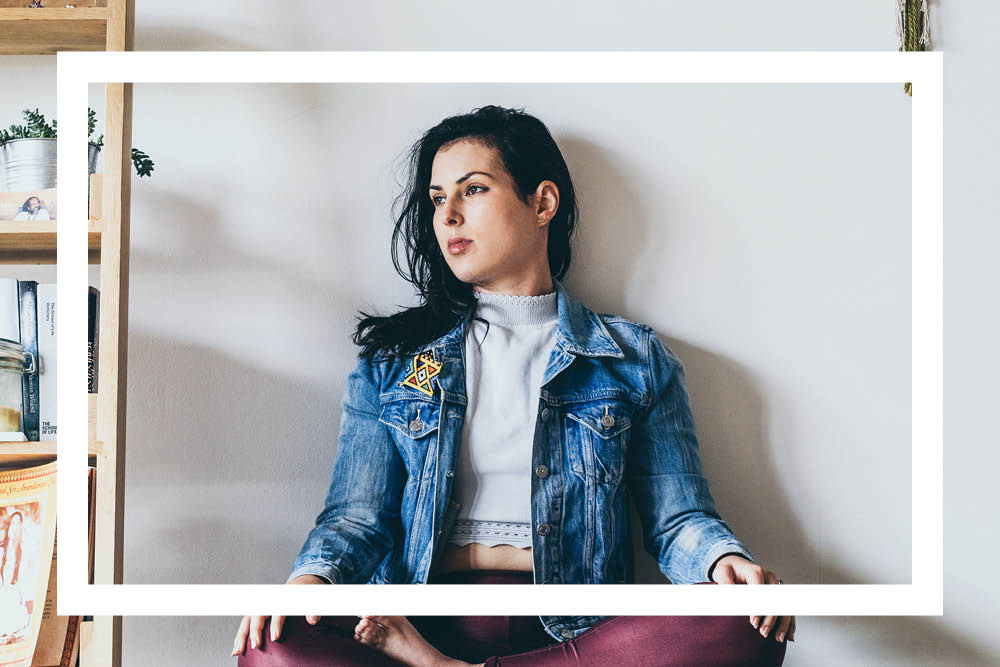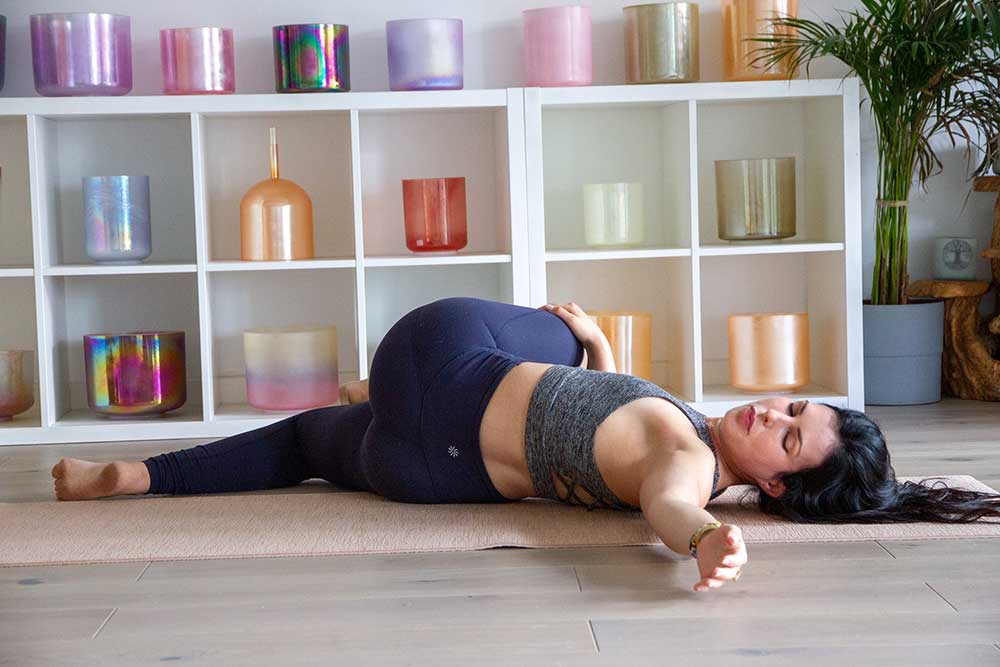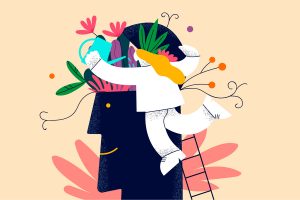5 at-home meditation techniques and yoga poses to reduce pandemic anxiety

In times of uncertainty, the yoga practice can offer support, comfort, and stability. Whether you have been coming to your mat for years or are just curious on how these different shapes and techniques can ease any anxiety, depression, or restlessness you might be experiencing, know that you are not alone in any of this and that these are tools to offer outlets for self-expression.
Here are 5 simple at-home meditation techniques and yoga poses from Jordan Ashley, Yogi and Founder of Souljourn Yoga, that you can do anywhere in your home to help reduce anxiety:
GROUNDING
Whenever I feel anxious or nervous, I lie down on the ground. Grounding is a great way to reconnect with your physical body as you are surrendering to gravity. You can lie down flat in a more traditional, savasana shape (legs and arms apart, almost to resemble a star) or take constructive rest (feet mat width distance apart, knees knocked in). I like to place a hand to my heart and a hand to my belly and focus on the breath filling up my palms and then notice how the palms sink back into my body on the exhale.
Notice what parts of the body are in contact with the ground, and which ones are exposed. Try to let the whole spine sink into the ground. You can stay here for as long as you want and even add some relaxing music while you practice grounding.
AFFIRMATIONS
The words we choose to think and speak are the words that we bring into our lives and they dictate our mood and day. Words are like the seasonings and spices we put into our life If we want sweet food, we use certain ingredients. If you want to have a positive day, we need to use certain words.
Three positive words: Choose 3 positive words that describe the way you want to feel. Write them down and repeat them in your mind any time you find yourself having a difficult time.
Gratitude: Choose 1-3 things you are grateful for. Write them down and remember these throughout your day. Make it a point to say “thank you” multiple times a day.
Empowering Phrases: Choose 1-3 phrases that you need to tell yourself. For example:
- “I am strong”
- “I am kind”
- “I am a leader”
- “I am smart”
- “I am powerful”
Write these phrases down and repeat them throughout your day.
SUPINE TWIST
Twisting is a great way to release any tension or stress that has built up in your gut and also release any tension in the hips, neck, and shoulders as twisting on the floor provides support for the whole body to release. Open your arms are in a “t” or cactus shape to open up the back. As the legs go to the right, the head/neck should look to the left and vice versa. Try to close your eyes or soften your gaze.
PIGEON
In the esoteric practice of yoga, it says that our hips hold our emotions, so a great way to work through any stuck feelings, is to practice opening up the hips. Not only is Pigeon a hip open, but also a forward fold which is great for introspection.
Have wrist and the knee in the same plane. To make the pose less intense, angle your foot in closer to your hip. If your sitting bone doesn’t connect with the ground, place a blanket or pillow underneath. Make sure your back foot is relaxed and straight. Shoulders roll down away from your ears. You can also support your heart and forehead by placing a block underneath the sternum and brow bone. If this is too intense, you can do a “Figure-4” stretch on your back.
BRIDGE
Backbends can be really helpful to combat depression as they act as a heart opener. Anything to open up the back body can create a sense of energy or lift. Also, if you are working from home and feel like your posture needs a little bit of a boost, a bridge can help to open up the shoulders and create length in the spine. Have your feet inner, hip-width distance apart and toes turning forward. Gently squeeze into your inner feet like you have a ball in between your knees. Keep your gaze up to the ceiling. Keep your palms glued to the ground as you float your hips up.
You can roll the spine up and down to create a flow or slide a block under your low back for a more restorative shape. Please do not roll the spine if any support is under the back.










